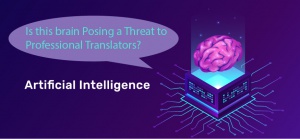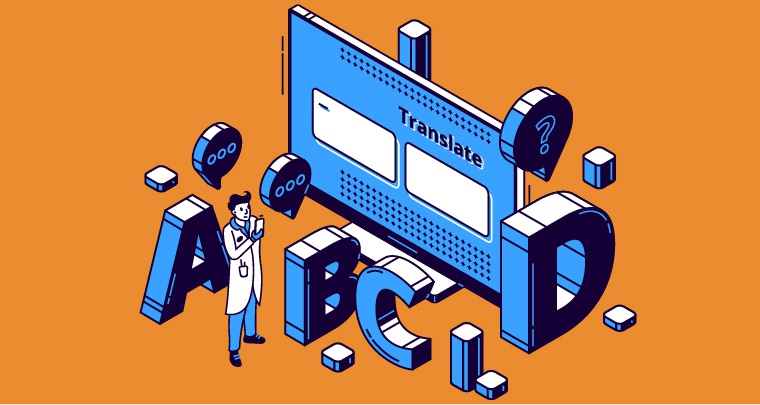
Augment or Replace: Is AI Posing a Threat to Professional Translators?
June 3, 2020
With the rapid development of artificial intelligence (AI), humankind is reflecting on the possibility that a large number of jobs can be done by AI in the not-so-far future. In the prediction of AI researcher John Pugliano, seven professions may be replaced by robots, namely doctors, lawyers, architects, accountants, pilots, policemen, and real estate agents. For these professionals as well as for translators, the cultivation of talents is often costly and time-consuming. Will professional translators soon be facing the great challenges brought about by this impending threat?
We should conduct a basic linguistics analysis to tackle this question. Today, there are over 5,000 living languages in the world, and each of them are different in terms of semantics, phonetics, grammar…etc. Some of them, such as French, Spanish, Italian, are of the same Latin origin, and compared to languages from different language families, translation between any two of them is certainly less complex. In Hong Kong, both Chinese and English are common; however, the connection is nil between the Chinese language family and the Germanic language family, to which the English language belongs. The obvious difference is that Chinese is a language of ideographic logogram whereas English is a language of phonogram. It is not hard to imagine the difficulty of English-Chinese translation.
In our further discussion, we will focus on English-Chinese translation as it best suits our daily needs. The technology of Machine Translation saw a breakthrough when Google launched the Google Neural Machine Translation (GNMT) in 2016. It encodes each word in a sentence into a vector. To generate the corresponding translation, the neural network decodes it while taking into consideration the other vectors in the sentence. More importance is placed on sentence structure and the connection between words, resulting in more accurate translation. After GNMT, other technology companies such as Facebook, Microsoft, Baidu, Yaodao Translation have been developing their own neural network system. If the AI can take full advantage of the vast amount of data in the internet, wouldn’t it become an invincible translator, similar to the chess master Alpha GO?
That did not happen. The English and Chinese language families are both magnificent and complicated systems, unlike a game of chess with fixed rules and goals. Besides its literal meaning, a language expression also contains the tone of voice and rhetorics, maybe with slang, idiomatic expression and common usage; different situations and different audiences would also affect the way we use language. Translators have to consider many other issues beyond the literal meaning. A famous translator of Jin Yong novels, Anna Holmwood, shared her strategy in handling the English version of “A Hero Born: Legends of the Condor Heroes”(《射鵰英雄傳》) in order to make it more readable for English readers. The combat scenes were translated according to their senses; but for the Emperor names, Earthly Branches, Moves of Martial Arts, she stuck faithfully to the original. We can see that machine translation will not be able to take over everything, at least not literatures.
Translations of movie titles also show the value of human translators. Three different versions of a foreign movie’s title in Mainland China, Hong Kong and Taiwan always reflect different regional cultures, translator’s skills and the movie plot. In contrast, AI can only provide the literal meaning.
What we discussed involve more flexible translation and cultural understanding. What about other fields? Machine translation is uniquely equipped to handle documents with higher repetition rates, or certain standard formats such as legal documents. But even if machine translation can help, the human linguists still have to take part in the process in order for accuracy and quality. Today, AI is still only a tool of ours, and we are still far from wholeheartedly trusting it.
A man’s vocabulary is extremely limited compared to that of a machine. However, it is our unique advantage to make the most out of these words and expressions, and more importantly, to use machines as tools. Up to this day, we have not yet encountered a “translation robot” with sufficient understanding of humanity to handle our everyday tasks. For the foreseeable future, we believe translators are here to stay.
To find out more about the technologies and our solutions, please visit our website at www.intlingogroup.com or contact our Business Development Department or Customer Services Department.


